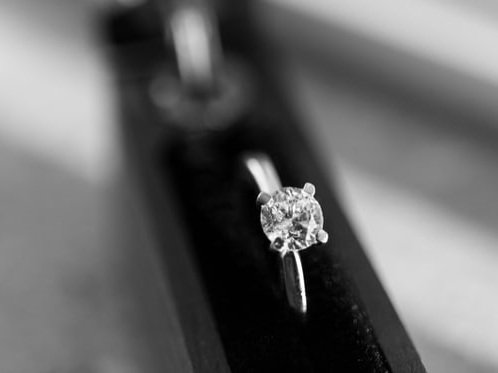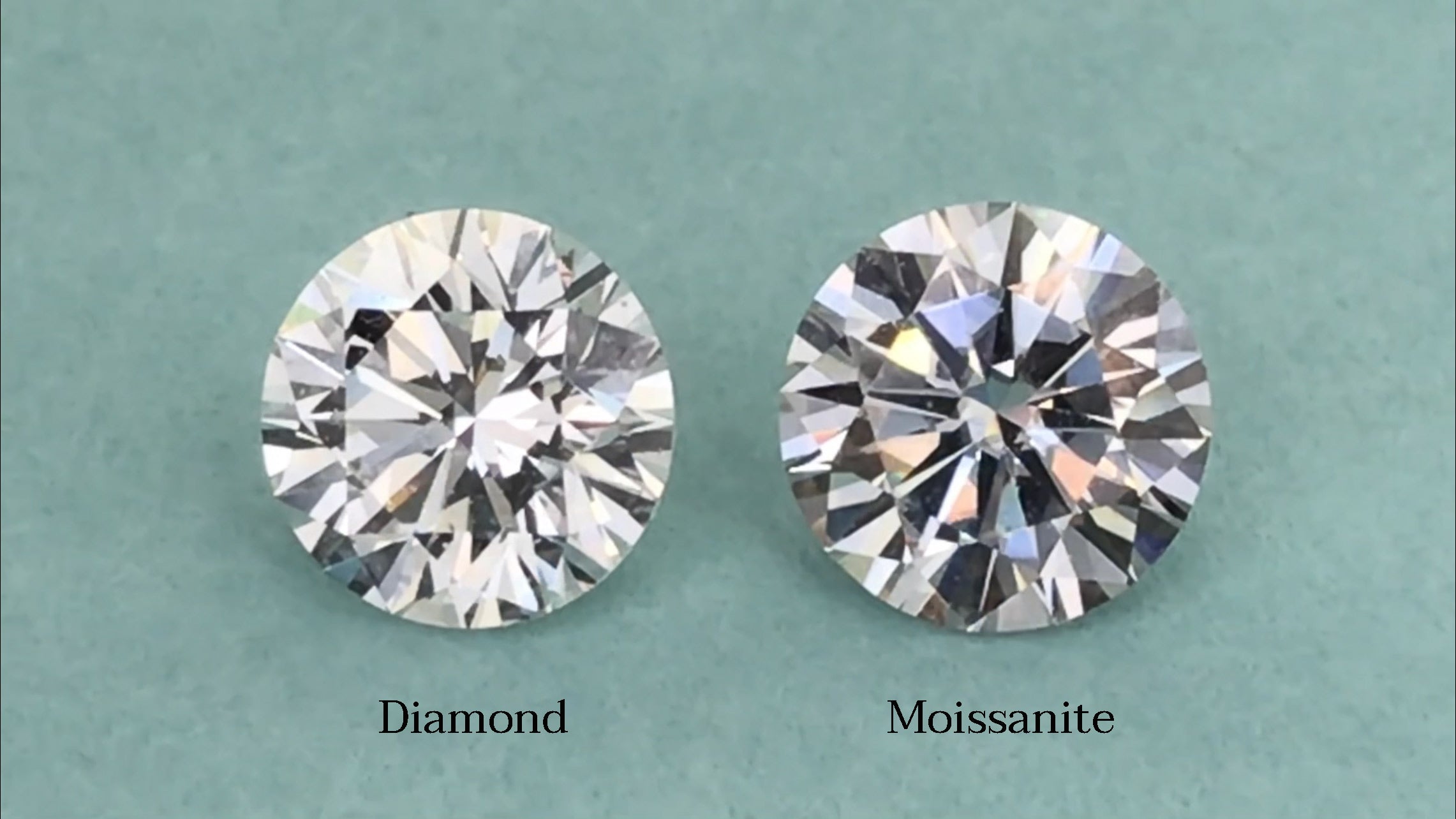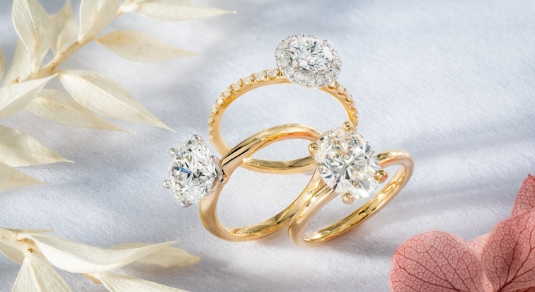When it comes to purchasing diamonds, one of the most important factors to consider is the grading of the stone. The two most reputable and widely recognized organizations in the diamond industry for grading diamonds are the Gemological Institute of America (GIA) and the International Gemological Institute (IGI). These two organizations play a vital role in ensuring that a diamond’s quality is accurately assessed, but they differ in some key aspects. In this article, we will compare GIA vs IGI to help you make an informed decision when choosing a diamond.
What is GIA?
A Leader in Diamond Grading
The Gemological Institute of America (GIA) is one of the most prestigious and well-known gemological institutions in the world. Founded in 1931, GIA has earned a reputation for providing the most accurate and reliable diamond grading reports. GIA is a non-profit organization based in the United States, and it is recognized for its high standards in gemological education and research.
The GIA Grading System
GIA follows a stringent and internationally recognized grading system for diamonds, which includes the famous 4Cs: Cut, Color, Clarity, and Carat weight. The GIA grading report is highly regarded because it is objective, consistent, and backed by years of research. Diamonds graded by GIA are considered to have the most accurate and unbiased assessments in the market.
Why Choose a GIA-Graded Diamond?
- Reputation for Accuracy: GIA is widely recognized as the gold standard in diamond grading. Their grading reports are trusted by professionals and consumers worldwide.
- Transparency: GIA reports are detailed and transparent, providing information about every aspect of the diamond.
- Consistency: GIA uses a scientific, consistent grading process that is applied worldwide.
- Resale Value: GIA-certified diamonds tend to hold their value better in the market due to the credibility associated with the institution.
What is IGI?
A Reliable Diamond Grading Institution
The International Gemological Institute (IGI) was founded in 1975 in Belgium and has since become one of the leading global diamond grading organizations. IGI is known for offering diamond certification services, gia vs igi, but it is often viewed as more affordable and accessible than GIA. IGI operates globally with multiple offices in major cities around the world.
The IGI Grading System
Like GIA, IGI grades diamonds based on the 4Cs, but it uses its own grading standards and methodology. While IGI is respected in the industry, its grading system is sometimes viewed as slightly more lenient than GIA’s. This means that a diamond graded by IGI may sometimes receive a higher grade than one graded by GIA, which has led to concerns about consistency and accuracy.
Why Choose an IGI-Graded Diamond?
- Affordability: IGI certificates tend to be less expensive than GIA reports, making it an attractive option for budget-conscious buyers.
- Global Presence: IGI has a broad international reach, offering services in various countries.
- Variety of Services: IGI offers grading reports for not only diamonds but also gemstones and jewelry, which can be convenient for buyers looking for a comprehensive assessment.
GIA vs IGI: Key Differences
1. Grading Rigidity
The most significant difference between GIA and IGI is the grading rigidity. GIA is widely known for its strict and objective grading process, while IGI is often considered to be a little more lenient. This leniency can sometimes result in a diamond receiving a slightly higher grade with IGI than it would with GIA. While IGI is still trusted, the general consensus is that GIA provides a more conservative and reliable assessment.
2. Recognition in the Industry
GIA is regarded as the most respected and recognized grading institution in the diamond industry. Many high-end jewelry retailers and consumers prefer GIA-certified diamonds because of the organization’s reputation for accuracy and consistency. IGI, while respected, does not have the same level of widespread recognition, especially among luxury buyers.
3. Cost of Certification
The cost of certification is another notable difference between GIA and IGI. GIA reports tend to be more expensive due to the extensive research and scientific methods involved in their grading process. IGI, on the other hand, offers a more budget-friendly option for those who want certification without paying the premium that comes with GIA.
4. Market Value
Diamonds graded by GIA often have a higher resale value because of the institution’s global credibility. Diamonds with IGI certifications can still hold good value but may not fetch as much in resale compared to GIA-certified stones. Buyers often look for GIA certificates when considering long-term investments.
5. The Grading Process
Both GIA and IGI grade diamonds based on the 4Cs, but the grading process can vary slightly between the two organizations. GIA uses a more detailed and scientific approach to its grading system, including rigorous testing and evaluation by experts. IGI’s grading process is reliable but may not be as stringent as GIA’s.
GIA vs IGI: Which Should You Choose?
When to Choose GIA?
If you are looking for the most trusted and accurate lab diamonds grading, GIA is the clear choice. GIA certificates are ideal for those purchasing high-value diamonds or those interested in ensuring the diamond’s quality and investment potential. Its reputation, consistent grading, and transparency make it the top choice for most professional jewelers and savvy buyers.
When to Choose IGI?
IGI is an excellent choice for buyers who are looking for a more affordable grading option. If you’re purchasing a diamond within a specific budget or if you’re buying a diamond for personal use rather than investment purposes, IGI may provide a suitable certification without the higher cost associated with GIA.
Conclusion
Both GIA and IGI play crucial roles in the diamond grading industry, and the choice between the two ultimately depends on your needs and priorities. If accuracy, resale value, and industry recognition are important to you, GIA is the preferred option. However, if affordability and a reliable grading process are your primary concerns, IGI offers a solid alternative.
Before making your decision, make sure to understand the grading reports thoroughly, compare the certifications, and consult with trusted jewelers to ensure you’re making the best choice for your diamond purchase.



